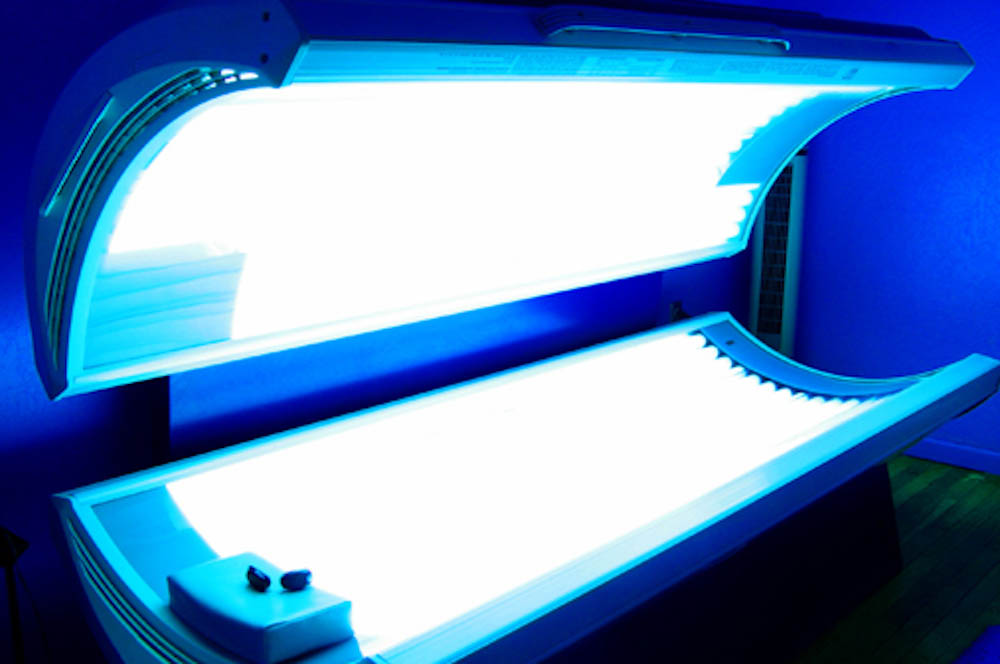
Updated 1/28/16
If you’re thinking about hitting the tanning beds to get started on your “base tan,” don’t. That’s the advice of Jennifer Y Lin, MD, of Dana-Farber’s Center for Melanoma Oncology.
Melanoma, the most deadly form of skin cancer, is on the rise, particularly in women aged 25-32. The frequency of tanning and age at which you start tanning both affect your risk of melanoma. Too much sun exposure of any kind can be harmful, but tanning booths are even worse. Seventy-five percent of melanomas diagnosed between the ages of 18 to 29 years of age are associated with tanning bed use. Tanning beds emit three to six times the amount of radiation given off by the sun, meaning that using a bed or a booth for 20 minutes translates into one to three hours of lying out at the beach without any sun screen protection.
Learn more:
In 2015, the Food and Drug Administration (FDA) proposed banning use of tanning beds/sun lamps for people under the age of 18, and those over 18 who do tan would have to sign a risk acknowledgement certification.
Indoor tanning systems expose users to ultraviolet A (UVA) radiation, which deeply penetrates the surface of the skin, damages underlying cells, and prematurely ages skin. Contrary to common thought, tanning beds don’t provide users with any vitamin D, an essential part of health. (Most people only need five to ten minutes of sun exposure 2 to 3 times a week to help your skin make this crucial vitamin.)
To better your skin health, incorporate orange juice, milk, fish, and supplements into your diet as alternative sources of Vitamin D, avoid prolonged periods of time in the sun without sun screen protection, see your dermatologist yearly, and stay away from tanning beds.

Let’s take a look at these statements above:
1) Melanoma, the most deadly form of skin cancer, is on the rise, particularly in women aged 25-32. * Yet, according to the National Cancer Institute, an estimated 0.6% are diagnosed under age 20; 6.5% between 20 and 34. 92.9% are older than 34. The median age is 61 and male.
2)75 percent of melanomas diagnosed between the ages of 18 to 29 years of age are associated with tanning bed use. * However, avoiding sunbeds does not prevent melanoma. There are other significant risks: http://www.aad.org/stories-and-news/news-releases/new-research-finds-six-factors-predictive-of-melanoma-risk
3)Tanning beds emit three to six times the amount of radiation given off by the sun, meaning that using a bed or a booth for 20 minutes translates into one to three hours of lying out at the beach without any sun screen protection.* There is no generic intensity of sunlight. The intensity of the sun is controlled by time of day, time of year, proximity to the equator, and altitude. What beach is being referred to? Miami Beach at noon in July or Portland, ME at 3pm in January?
For more on these myths and others, visit: http://joe1resource.blogspot.com/
I do agree with this, because tan beds are becoming the popular reasons for the skin cancers. Some of my known were eager to use booths or beds, but after this news they are not going to this way now.
The World Health Organization has declared indoor tanning devices to be cancer-causing agents that are in the same category as tobacco. Studies have found a 59% increase in the risk of melanoma in those who have been exposed to UV radiation from indoor tanning. Learn more at http://www.chevychasecosmeticcenter.com/tanning-beds-skin-cancer-and-aging-skin-risks/